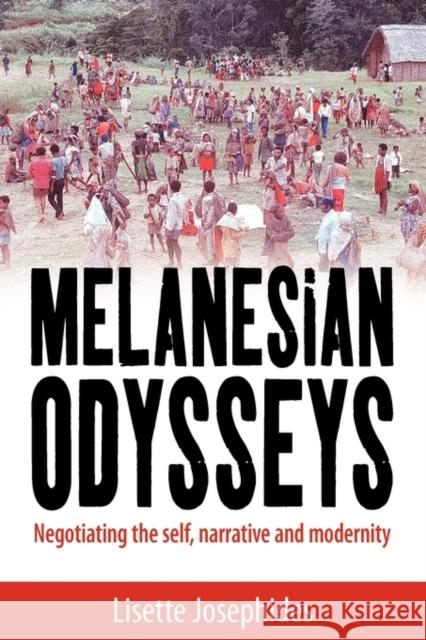Melanesian Odysseys: Negotiating the Self, Narrative, and Modernity » książka
Melanesian Odysseys: Negotiating the Self, Narrative, and Modernity
ISBN-13: 9781845457068 / Angielski / Miękka / 2010 / 272 str.
Melanesian Odysseys: Negotiating the Self, Narrative, and Modernity
ISBN-13: 9781845457068 / Angielski / Miękka / 2010 / 272 str.
(netto: 130,37 VAT: 5%)
Najniższa cena z 30 dni: 135,22
ok. 30 dni roboczych.
Darmowa dostawa!
In a series of epic self-narratives ranging from traditional cultural embodiments to picaresque adventures, Christian epiphanies and a host of interactive strategies and techniques for living, Kewa Highlanders (PNG) attempt to shape and control their selves and their relentlessly changing world. This lively account transcends ethnographic particularity and offers a wide-reaching perspective on the nature of being human. Inverting the analytic logic of her previous work, which sought to uncover what social structures concealed, Josephides focuses instead on the cultural understandings that people make explicit in their actions and speech. Using approaches from philosophy and anthropology, she examines elicitation (how people create their selves and their worlds in the act of making explicit) and mimesis (how anthropologists produce ethnographies), to arrive at an unexpected conclusion: that knowledge of self and other alike derives from self-externalization rather than self-introspection. Lisette Josephides is Reader in Anthropology at Queen's University Belfast, following many years of fieldwork in Papua New Guinea and teaching positions at the University of Papua New Guinea, the London School of Economics and the University of Minnesota.
In a series of epic self-narratives ranging from traditional cultural embodiments to picaresque adventures, Christian epiphanies and a host of interactive strategies and techniques for living, Kewa Highlanders (PNG) attempt to shape and control their selves and their relentlessly changing world. This lively account transcends ethnographic particularity and offers a wide-reaching perspective on the nature of being human. Inverting the analytic logic of her previous work, which sought to uncover what social structures concealed, Josephides focuses instead on the cultural understandings that people make explicit in their actions and speech. Using approaches from philosophy and anthropology, she examines elicitation (how people create their selves and their worlds in the act of making explicit) and mimesis (how anthropologists produce ethnographies), to arrive at an unexpected conclusion: that knowledge of self and other alike derives from self-externalization rather than self-introspection.Lisette Josephides is Reader in Anthropology at Queens University Belfast, following many years of fieldwork in Papua New Guinea and teaching positions at the University of Papua New Guinea, the London School of Economics and the University of Minnesota.











